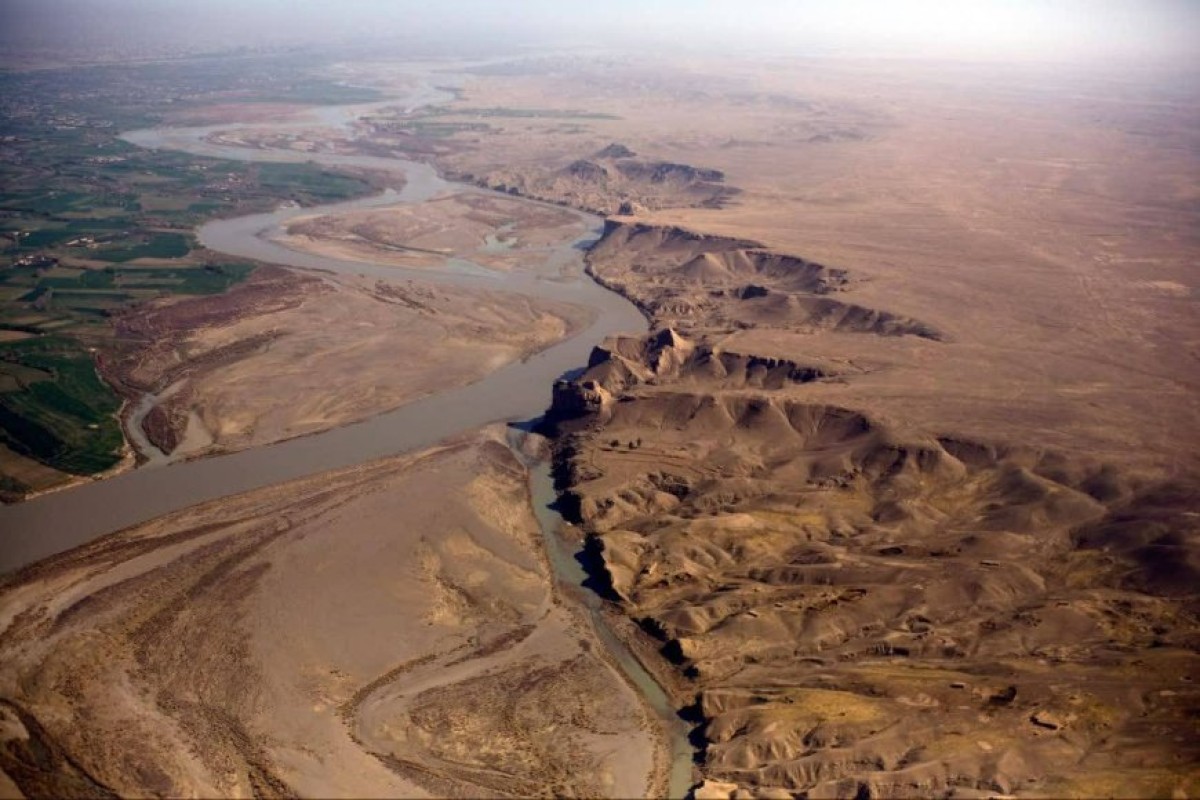 540
540
By: A. Yeganeh
Stretching for 1100 kilometres, the Helmand River, originating from the eponymous province in Afghanistan, is an important waterway that flows into Lake Hamun, a shared body of water between Afghanistan and Iran. The political landscape between Iran and Afghanistan has been tense, as Iran's water rights have long been a contentious point. Iran's claims over the Helmand River have recently gained significant attention, as Tehran has explicitly urged Afghanistan to guarantee the unimpeded passage of this vital resource to Iran's drought-hit Sistan.
The Treaty of Paris in 1857, which resulted in the separation of Herat from Iran, is widely believed to have been influenced by British machinations. Its impact on the region's geopolitical dynamics has been profound and long-lasting, with reverberations still being felt today. In a historic move on February 22, 1937, a temporary agreement was reached between Iran and Afghanistan. The agreement stipulated that the distribution of water entering the Kamal Khan Dam would be equally divided between the two countries. Following extensive discussions, the Delta Commission report was ultimately ratified on March 13, 1973. Ultimately, in June 1973, the legislative bodies of both nations granted their approval to this accord.
Amidst the Taliban's ascent to power and the multitude of challenges the group has inherited, there was some hope that the long-running border conflicts between Afghanistan and its neighbours, namely Pakistan, India, and Iran, would be effectively addressed. It remains a fundamental problem that has yet to be resolved. In a recent development, the Taliban's obligation to ease the transfer of Iran's water rights to Iran's Sistan region has encountered alleged technical impediments. As a result, Iran's share of water has been directed into the desert areas, sparking an indignant reaction from Iran. The Taliban have publicly admitted their mistake and vowed to take the necessary corrective actions to prevent any such occurrences in the future.
Against the backdrop of the Taliban's political faux pas, the Iranian government has intensified its efforts to assert its water rights. The Islamic Republic of Iran's President, Dr. Ebrahim Raisi,'s recent remarks and the ensuing diplomatic exchanges suggest that the Iranian government is closely monitoring the Taliban. Should the Taliban continue to exhibit a hostile attitude towards Iran, it will undoubtedly face significant repercussions. The recent revelation that Iran has emerged as the leading nation in foreign trade with Afghanistan is a testament to Iran's significant sway over its neighbouring country.
On the other hand, the ongoing predicament concerning Iran's water rights can be attributed to the Taliban's quest to showcase their power to gain political legitimacy following their takeover of war-torn Afghanistan. In fact, the Taliban government's decision to withhold Iran's share of water resources is a calculated move to consolidate their rule and also gauge public sentiment. As we delve deeper into the intricacies of the relationship between Afghanistan and Pakistan, it becomes abundantly clear that the influence exerted by Pakistan's intelligence service (ISI) on the Taliban cannot be disregarded when assessing the Taliban's aggressive approach vis-à-vis Iran.
As a matter of fact, Pakistan finds itself amid internal turmoil, as evidenced by the recent arrest and subsequent release of Imran Khan, the former Prime Minister, which serves as a harbinger of further tumultuous times ahead. The question is whether Pakistan's strategy for mitigating its domestic predicaments entails instigating external strife between Iran and Afghanistan. As we look ahead, it is clear that only time will reveal the true outcome of this scenario.
The convergence of interests between the Iranian and Afghan nations, stemming from environmental concerns, offered an opportunity for resolving the Taliban's unfulfilled commitments regarding Helmand's legal regime. Given that one-third of this transnational wetland lies within Afghanistan's borders and the resultant dust reaches even the central regions of Afghanistan, there remains a possibility of a mutually beneficial resolution. The dire environmental ramifications of the Taliban's catastrophic decision to withhold the Helmand water are becoming increasingly apparent as the once thriving ecosystem has now devolved into a major contributor to air pollution, causing significant air pollution and a sharp decline in air quality across numerous cities and villages in both Iran and Afghanistan.
Like the disaster in the Aral Sea, many citizens who lived around Hamun for years either emigrated or lost everything. With the ongoing environmental challenges, it is noteworthy that a substantial influx of refugees from Afghanistan has made its way into the provinces of Sistan and Baluchistan. Therefore, given the intricacies of the refugee crisis and the deteriorating environmental conditions, it becomes increasingly clear that these two issues are inextricably linked and cannot be viewed in isolation. The increase in population, along with the sharp decrease in the quantity and quality of food, leads to an increase in the risk of malnutrition, especially among vulnerable groups such as children and the elderly.
Comment
Post a comment for this article